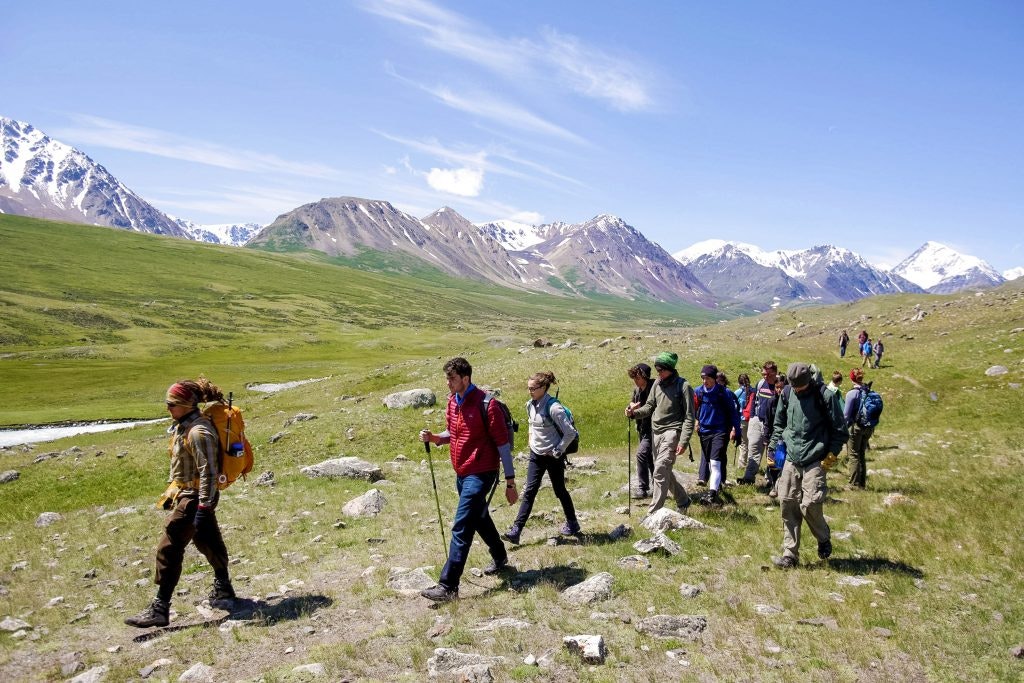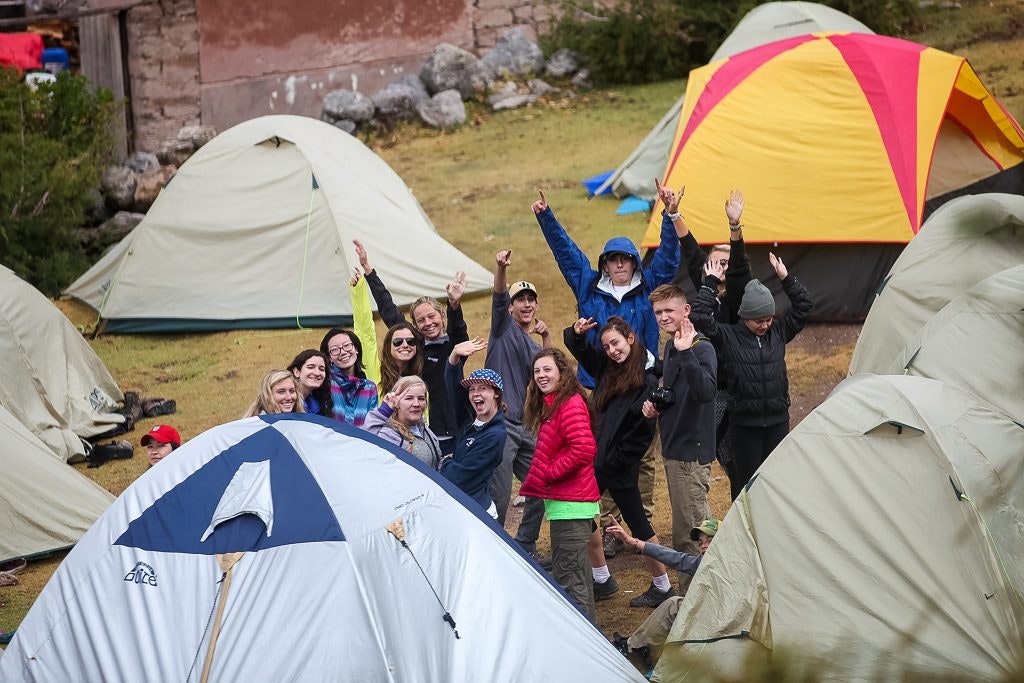Why It’s Important to Understand Generational Travel Trends
Regardless of generational differences, travel is looking up for 2026. AAA says the interest in international travel is high with a big boost expected in international vacations. One variation may be location. In 2026 less-crowded destinations are expected to be even more desirable. So maybe it’s time to book a program in countries like Mongolia, Nepal and Cambodia.
In fact, 63% of travelers expressed interest in visiting off-the-beaten-path destinations on their next trip, according to Expedia.
It shouldn’t be too surprising that there are some generational differences when it comes to travel. For one, Gen Z students may have a completely different way of describing a trip. When they say, “Bro, we were lowkey excited about going to Costa Rica and ONG it slapped.” Then you know all is well.
But what about other differences? Generally, across generations, travel has been on the rise over the last several decades. In fact, there’s been a stunning rise. Back in 1950 the United Nations World Tourism Organization estimated there were about 25 million international arrivals around the world per year. By 2018 that number had risen to 1.4 billion.
COVID-19 caused a drastic drop in international travel and is on its way to recovering to the 2018 level.
![International tourist arrivals per year by region. It shows an increase on tourist arrivals from 1950 to 2020, then a dip from Covid-19, and back on the rise after.]()
As seen in the chart, travels to Asia and Pacific have particularly increased over this time period, taking a larger chunk of the share. Europe has long been a popular destination.
Generational Travel Trends: General Trends
Across the generations, people are looking for unique experiences and once-in-a-lifetime adventures when they plan trips. There’s much more of a focus on what you may do while traveling than other factors like accommodations.
However, when it comes to certain particulars, someone from Gen X may make different choices than someone from Gen Z. Gen Z is more likely to travel internationally. Young adventurers are most interested in going to far-flung destinations.
For example, my mom had never traveled outside of Europe—until I convinced her to visit me in South Korea last year. Meanwhile, all three of her kids had been beyond Europe by the time we turned 18.

Students hike through the nature.
Partially because of family responsibilities, many Gen Xers take the fewest international trips. Meanwhile, baby boomers who are mainly retired take the longest trips and millennials take shorter trips but travel the most days each year. Millennials also like to have a good degree of rest and relaxation when they go, taking a break from their hectic lives.
Gen Xers spend the most money, but that is partly because they often are paying for older children and other family members when traveling. Because of this factor, Generation X is more price sensitive and likely to seek out deals and family packages.
How Generations Pick a Destination
Not shockingly, your average Gen Z person relies quite a bit on social media – Instagram to look into possible new destinations. An amazing 90% say social media plays a role in their travel decisions.
![A student enjoying peace between palm trees.]()
Living the dream…
Their parents’ generation is far less likely to use social media for destination inquiries. Meanwhile, baby boomers are the least likely to do destination research. Many baby boomers are decisive about their travel location and don’t need help picking a place. However, they’ll use technology for particulars, such as transportation.
Gen X Travel Trends
Often called the “sandwich generation,” Gen Xers (born 1965-1980) balance caring for both aging parents and children while managing careers. This unique position shapes their distinctive travel behaviors and makes them a valuable market segment:
Evolving Family Travel Patterns
Gen X is transitioning from traditional family trips to more diverse travel arrangements. The percentage of Gen Xers traveling with children under 18 has dropped significantly from 28% (2021) to just 17% (2024). Instead, they’re embracing multigenerational travel with adult children and extended family, or enjoying solo travel and friend-based trips.
Motivation: Escape and Rejuvenation
More than 60% of Gen Xers planning vacations do so specifically to de-stress and escape everyday pressures. For 68%, rest is the primary motivation. This generation increasingly values wellness activities during travel, from spa treatments to mindfulness workshops, reflecting their growing health consciousness and need to recharge from their hectic lives.
Experience Seekers with Cultural Interests
Despite traveling less frequently than other generation due to busy schedules, Gen X travelers seek quality over quantity. A striking 84% want to try something new on vacation, with strong preference for cultural experiences, visiting museums, historical sites, and opportunities to engage with local communities. They often seek authentic experiences that provide meaningful connections.
![A diverse group of four is posing for a photo, having smiles all over their faces.]()
Create lasting memories with local community members and fellow travelers.
Tech-Savvy Planners
Contrary to stereotypes, Generation X embraces technology for travel planning—79% expect seamless online booking experiences while traveling and value the ability to book trips entirely online. They typically plan well in advance and prefer straightforward booking processes with consistent communication.
Value-Conscious Quality Seekers
While often outspending other generations (partly due to traveling in larger groups), Gen Xers remain budget-conscious. Over 90% prioritize finding the best value before booking, actively seeking deals while still willing to invest in quality experiences. They allocate approximately 13% of their travel budget specifically to tours and excursions, demonstrating their commitment to meaningful activities.
Types of Trips
It’s a little more difficult to pin more specific travel preferences to a generation, but there are several tidbits of interest when it comes to generational differences.
![A woman cooks delicious local food with a great view of the green outdoors.]()
Cooking over an open fire with a view to match.
Expedia research has found that 70% of people in Generation X say they enjoy museums, historical sites, arts and culture. Nearly half of baby boomers plan their trips around food and drink and interestingly that increases to 67% for Chinese and Mexican baby boomers.
Since millennials take more trips than other age groups, they tend to have a wider variety of trips, including visiting family, seeing well-known sightseeing destinations, and traveling to spots that are off the beaten track. They also often combine business travel with leisure experiences.
Generation Z often likes unique experiences that are interactive and social when traveling. People in Gen Z score above average in their love of the ocean. This generation is also twice as likely as other generations to stay in alternative accommodations, such as glamping instead of staying in a hotel. Their growing interest in self-discovery and sustainability shapes many of their travel choices.
What This Means for the Travel Industry
This exciting time in travel presents a significant opportunity for travel brands to tailor their offerings:
- Family-friendly options remain essential but should evolve to accommodate multigenerational groups and kid-centric activities
- Wellness offerings are increasingly important across all generations, with Gen Xers seeking opportunities to de-stress
- Grab-and-go options and flexible dining appeal to younger travelers, while boomers often prefer more traditional dining experiences
- Technology should enable seamless online booking while still offering the human touch that many travelers value
- Solo adventures are growing in popularity across all age groups, with solo travel representing a significant portion of the market
The diversity in travel preferences across four generations makes this an exciting time for innovation in the travel industry. By understanding the unique characteristics of each generation’s approach to travel, brands can create more tailored, satisfying experiences for everyone.

Camp in tents under the milky way and get to know your fellow travelers around a bonfire.



